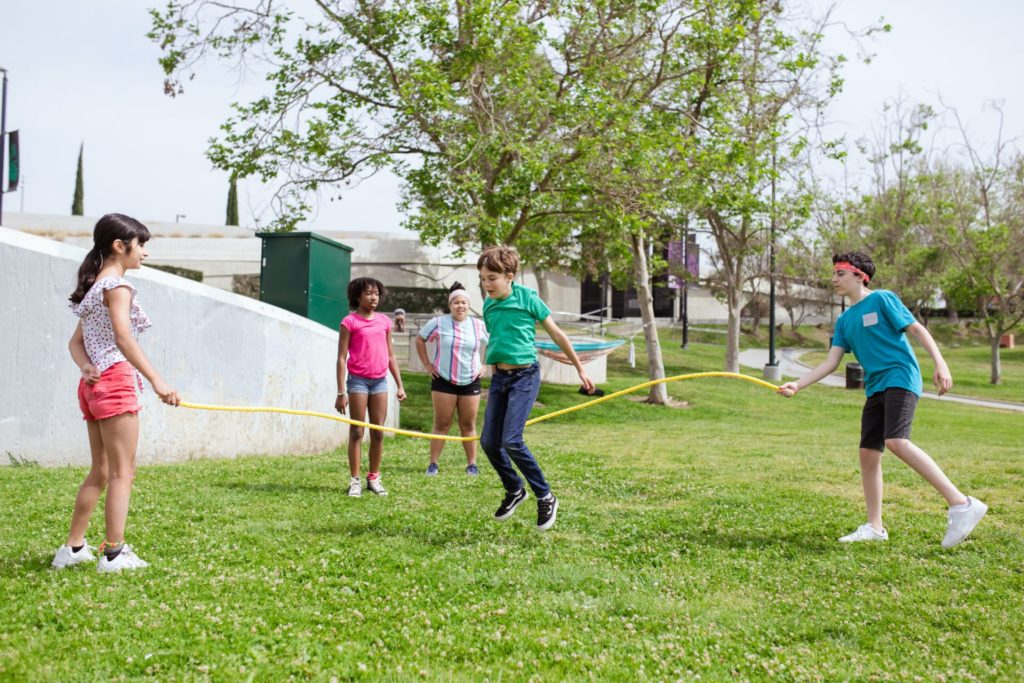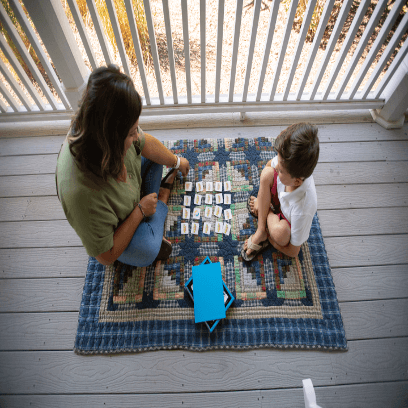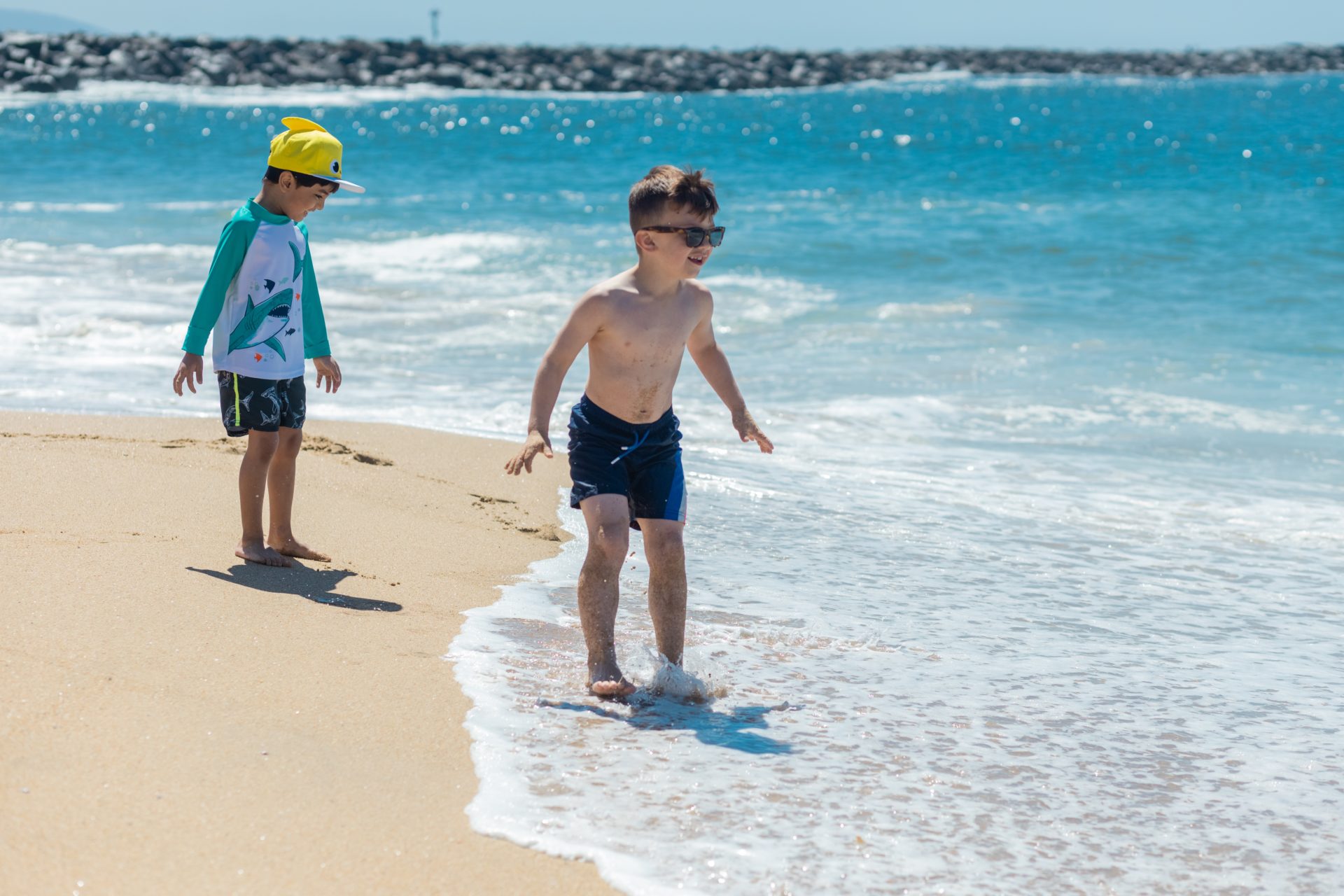Summer break is here and it’s a time for kids to unwind, explore, and enjoy a bit of a break from school routines!
However, finding the right balance between a carefree summer and the need some of our kiddos have for more structure and predictability can be a challenge for parents. Beyond Speech Therapy Specialists understands the importance of providing a supportive and balanced environment for children.
In this post, we’ll share tips on how to structure an unstructured summer – ensuring that your kids have an exciting, fun-filled break while maintaining some structure and routine.
1. Establish a Daily Routine
While summer is absolutely a time for relaxation, maintaining a basic daily routine can provide the structure and predictability that a lot of our kids need.
Try setting regular wake-up and bedtime routines to help them maintain a consistent sleep schedule and establish at least one set mealtime during the day.
Help kids plan ahead by creating a simple daily schedule with set times for activities like reading, chores, outdoor play, or creative projects. A basic (and flexible) routine helps kids understand what to expect each day, providing a sense of stability and comfort.
2. Plan Summer Break Theme Days or Weeks
Look ahead at the summer months and plan theme days, or weeks, that kids can look forward to and count on.
As a family, choose a different theme for each day or week, such as arts and crafts, nature exploration, sports, or cooking. Allow for flexibility and creativity within each theme, encouraging your kids to engage in activities that fit your theme.
This sort of planning provides a loose structure for summer break while also fostering exploration and creativity.
3. Encourage Independent Play and Exploration
The long days of summer allow for plenty of independent play and exploration – so encourage that by planning ahead!
Set aside specific periods each day when your kids can play and explore without any guidance. This balance of planned activities and more self-directed play is so important as our kids build confidence, independence and self management skills.
Encourage them to play outdoors, read, build with blocks, or engage in imaginative play.

4. Plan Family Activities
Be sure to include activities for the whole family this summer break!
Plan regular outings to local parks, museums, or community events. Schedule family game nights or movie nights to enjoy quality time together.
These structured – but super fun – activities allow for bonding and shared experiences while adding a sense of predictability to your kids’ summer.
5. Prioritize Skill-Building Activities
Summer break provides an excellent opportunity for your kids to develop new skills or enhance existing ones – all while having so much fun!
Encourage them to engage in activities that interest them, such as learning to play a musical instrument, joining a sports program, or taking part in art classes These structured activities allow for growth and learning while adding a sense of purpose to their unstructured summer.
6. Create a Summer Bucket List
Before summer break really gets underway, sit down with your kids and create a summer bucket list together.
Let them brainstorm activities they would like to do, places they want to visit, or skills they want to learn. Then use that list as a guide for planning your summer.
Your bucket list will give a more solid sense of direction and excitement for your kids as they work towards completing the items on their list.

7. Establish Screen Time Guidelines
Screen time can easily consume a significant portion of your kids’ summer if left unregulated – and we know that’s not the healthiest use of their downtime.
At the beginning of summer break, establish clear guidelines for screen time usage. Set specific time limits or designate specific times of the day when screens are allowed.
And always encourage alternative activities, such as outdoor play, reading, or creative projects, to help balance their screen time.
8. Embrace Summer Break Spontaneity
While structure is essential – and for lots of kids, necessary – it’s also so important to leave room for spontaneity!
Embrace impromptu outings, picnics, or spontaneous playdates with friends. Allowing for unexpected adventures adds an element of excitement and surprises to your kids’ summer, making it memorable and enjoyable.
This balance of structure with spontaneity is also an important skill for our kids to learn, so like we always say, play with a purpose this summer!
When planning your unstructured summer, remember to find a balance between providing a sense of structure and allowing for the freedom and spontaneity that summer break brings!
And if Beyond Speech can support you or your child this summer, please reach out! We offer private, in-home therapy for kids and we are here to help!

